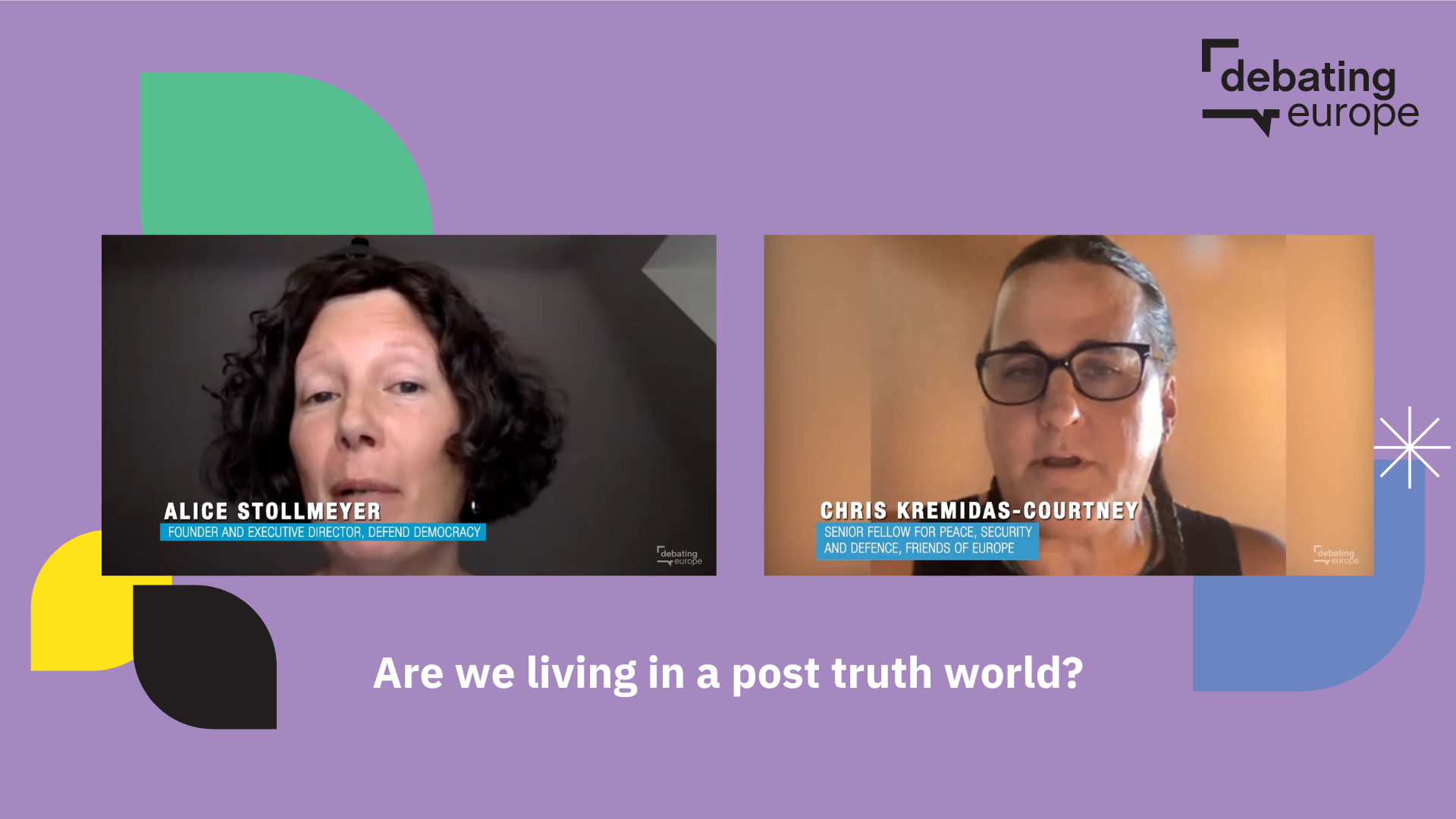Events
Are we living in a ‘post-truth’ world?
Material
Download
What do citizens think about the threat of disinformation? Do they agree that disinformation (i.e. deliberately deceptive information) and misinformation (i.e. unintentionally false information) threaten social cohesion and increase polarisation and extremism. Do they worry that false information could undermine free elections, public security, and public health (as during the COVID-19 pandemic)?
In order to find out, Debating Europe launched a series of focus groups to explore people’s attitudes towards disinformation as a threat to democracy.
Want to learn more about disinformation and misinformation? Check out our infographic below (click for a bigger version):

What do our readers think? During one focus group, Julia from Germany told us she fears social media has created a ‘post-truth’ world where “everyone has their own truth”:
💬 On social media you cannot discern what is the generally agreed upon fact. You can only see who is the loudest, who has the most viral video. You cannot make these determinations any more about what is a fact, what isn’t. This is where truth becomes not objective anymore. Everyone has their own truth.
Next up, Klaus from Estonia told us he fears content algorithms are one of the worst things to happen to our democracies:
💬 If you want to restore our media environment and our information spaces to anything that is reasonable, that is not just full of conspiracy theories and information bubbles, then we really need to do something about the fact that so many people get their information and their news from social media. I believe that social media is one of the worst things that ever happened to our abilities to understand the world. It works to feed us what we essentially want, it finds out like greatest weaknesses and micro-targets us with the most optimal propaganda. It is like custom made for making us incredible radicalised and incredibly ill-informed.
Education is often put forward as a solution to the problem of false information. However, Joao from Portugal told us he fears that education takes too long:
💬 Education is often put forward as a solution to the problem of false information (disinformation and misinformation). However, Joao from Portugal says: “Thinking about short term results, like five years 10 years, I don’t think we’re going to see that much of a difference from education.”
Finally, Andrei from Romania told us he would like to see tougher laws against spreading false information:
💬 I would literally outlaw TV channels, news outlets and journalists who in the past 10 years have stoked extremist views and have clearly lied to the public.
To get a response, we put all four of the above comments to:
- Alice Stollmeyer, Founder and Executive Director, Defend Democracy
- Chris Kremidas-Courtney, Senior Fellow for Peace, Security and Defence, Friends of Europe
See the video at the top of this post for their responses.
Are we living in a ‘post-truth’ world? If so, what does this mean for democracy? Is education the solution? Is there anything that can be done on a shorter timescale than education? hould there be stronger laws against spreading false information? Let us know your thoughts and comments in the form below and we’ll take them to policymakers and experts for their reactions!
Funded by the European Union. Views and opinions expressed are however those of the author(s) only and do not necessarily reflect those of the European Union or the European Commission. Neither the European Union nor the granting authority can be held responsible for them.![]()
